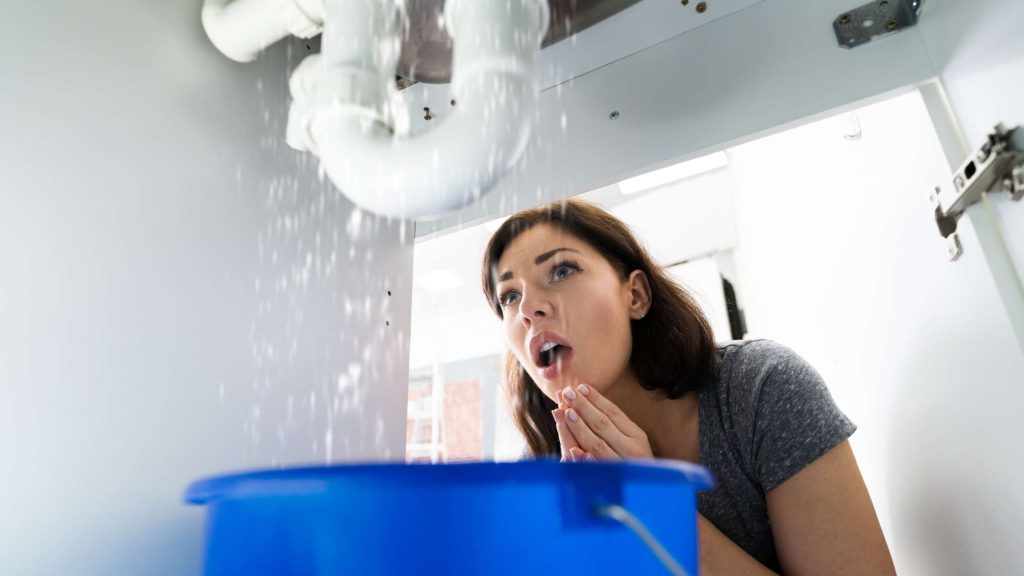Have you ever wondered if the quality of water flowing through your pipes can truly impact the lifespan of your plumbing system? It’s a theory worth considering, especially when you think about the complex interplay between contaminants and your home’s infrastructure.
Heavy metals, biological pollutants, and physical debris present in water may accelerate wear and tear, leading to unexpected repairs. But what specific elements should you be watching for, and how can you safeguard against these hidden threats?
Understanding Water Quality
Understanding water quality means examining the chemical, biological, and physical characteristics of water to determine its suitability for various uses.
You need to ensure that water meets established water quality standards for safe drinking and other purposes. Doing so is crucial for protecting public health.
Regular testing methods help you identify potential issues in your water supply, ensuring it’s safe to consume and use.
The materials used in your plumbing system can also influence water quality. Certain plumbing materials may leach contaminants into the water, affecting its safety and quality.
Key Contaminants in Water
When it comes to water quality, key contaminants like heavy metals, bacteria, and rust can significantly impact its safety and usability.
Heavy metals such as lead and mercury might seep into your water through corroded pipes, posing serious health risks.
Biological pollutants, including bacteria and viruses, enter water supplies due to inadequate treatment processes or aging plumbing systems.
Physical debris, such as rust and sand from deteriorating pipes, can clog fixtures and reduce water flow.
Environmental pollution from industrial runoff and land use practices also compromises water quality.
Ensuring treatment effectiveness is crucial in minimizing these contaminants.
Regular testing and maintenance of your plumbing system can help you address these issues and safeguard the water you use daily.
Environmental Influences
Environmental factors significantly shape water quality by introducing various pollutants from industrial runoff, land use practices, and natural processes into water sources.
You might notice how environmental pollution leads to contaminated water flowing into your plumbing system. Effective runoff management is crucial to minimizing these pollutants. By adopting sustainable practices, you can help reduce the impact of harmful substances entering water bodies.
Watershed protection plays a vital role in maintaining water quality. It involves preserving the natural areas around your water sources, which can filter pollutants before they reach the water supply.
Climate change also affects water quality by altering precipitation patterns and increasing the frequency of extreme weather events. Therefore, it is essential to adapt and implement strategies to safeguard your water supply.
Plumbing’s Role in Water Quality
A well-maintained plumbing system is crucial for ensuring your water remains clean and safe for everyday use. The materials used in your plumbing, such as copper or PVC, directly impact water quality.
If your pipes are outdated or showing wear, consider system upgrades to prevent contamination. Regular plumbing inspections help identify potential issues before they become serious problems, ensuring your system functions optimally.
Don’t forget the importance of routine water testing; it’s essential for detecting contaminants early and maintaining water safety standards. By taking these steps, you can ensure your plumbing system supports healthy water quality, providing peace of mind and safeguarding your household’s health.
Stay proactive with maintenance to keep your water consistently pure and safe.
Common Water Issues
In addressing common water issues, it’s important to recognize signs like rusty water or low pressure that can indicate underlying problems in your plumbing system.
Rusty pipes often lead to discolored water, pointing to corrosion that needs immediate attention. You might notice a foul odor, which could suggest the presence of chemical contaminants or bacterial growth, affecting both taste and safety.
Sediment buildup is another common issue, clogging fixtures and reducing water flow, often resulting in low pressure.
These problems affect more than just the plumbing; they can also impact your health. By staying alert to these signs, you can identify potential issues early and maintain the integrity of your water supply, ensuring it’s safe and reliable for everyday use.
Preventive Strategies
To keep your water safe and your plumbing system efficient, prioritize regular maintenance and timely inspections.
Start with homeowner education to understand potential water quality issues and learn about preventive technologies.
Investing in plumbing upgrades can significantly enhance your system’s overall performance and longevity.
Consider installing filtration systems to remove impurities and improve water taste and odor.
Routine water testing is essential for identifying contaminants early, ensuring your water remains safe for consumption and use.
By implementing these strategies, you will protect your plumbing and contribute to the health and safety of your household.
Staying proactive with these measures will help you avoid costly repairs and maintain a reliable water supply.
Maintenance and Inspections
Regular maintenance and inspections ensure your plumbing system remains efficient and your water quality stays high. By sticking to maintenance schedules, you can catch issues like pipe corrosion early, preventing more significant problems down the line.
Routine inspections help identify potential leaks, enabling prompt leak detection and repair, thus avoiding water wastage and damage. Consider fixture upgrades when necessary to improve performance and reduce water contamination risks.
Installing water filtration systems is another proactive step to maintain clean and safe water for daily use. Addressing these aspects not only prolongs the lifespan of your plumbing system but also safeguards your water quality.
Don’t wait for problems to escalate; keep your plumbing in top shape with regular check-ups and updates.
Safewell: Your Partner in Ensuring Clean and Safe Water
At Safewell, we understand the critical role that water quality plays in maintaining a healthy plumbing system.
Our team of experts is dedicated to providing custom solutions tailored to each client’s unique needs.
With our state-of-the-art testing and filtration systems, we can identify and remove hidden contaminants, ensuring your home’s water remains clean and safe.
Let’s be your partner in safeguarding the heart of your home.

